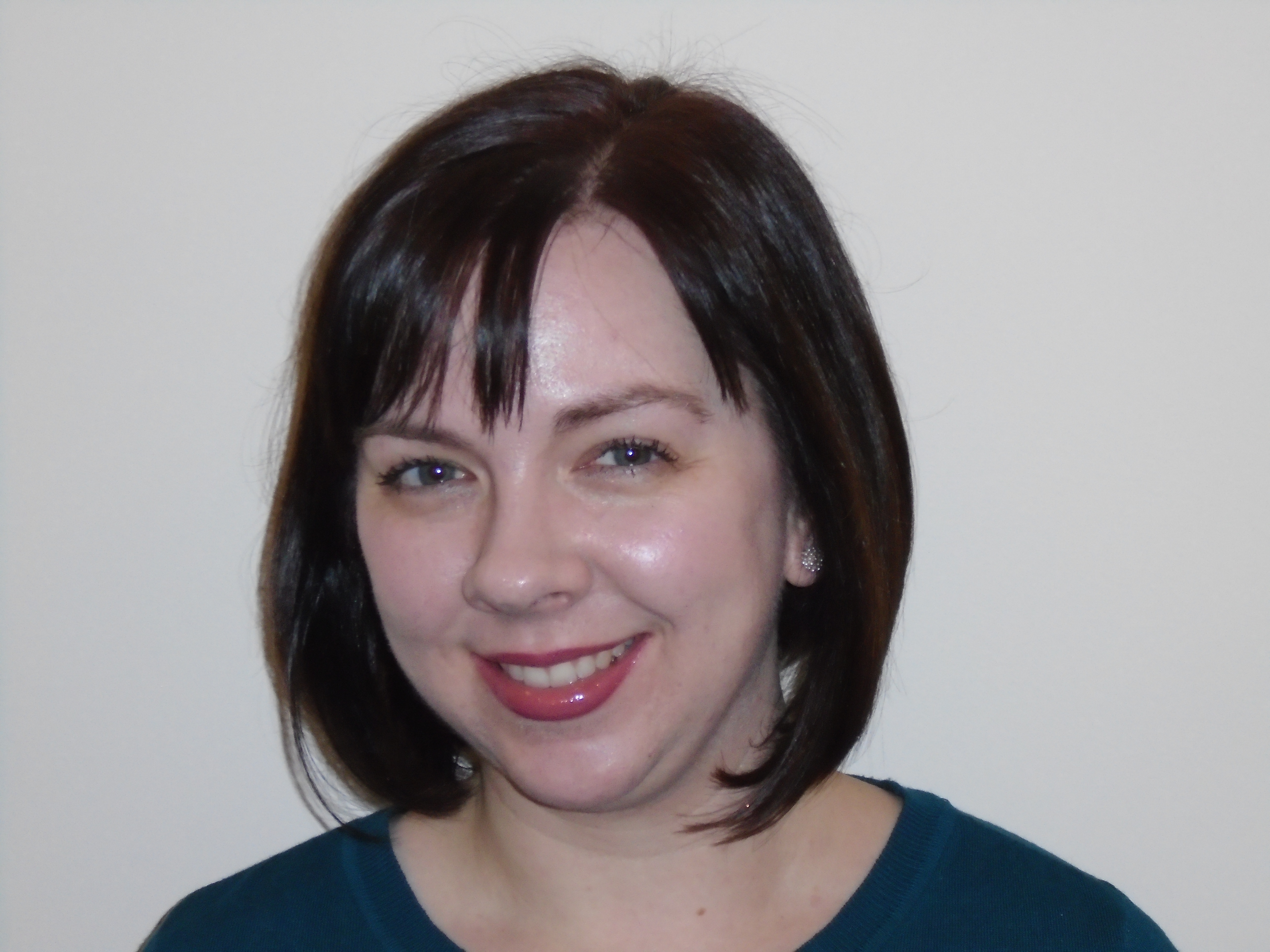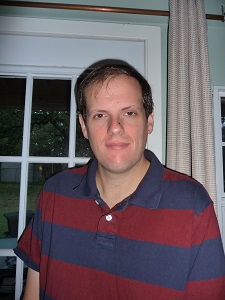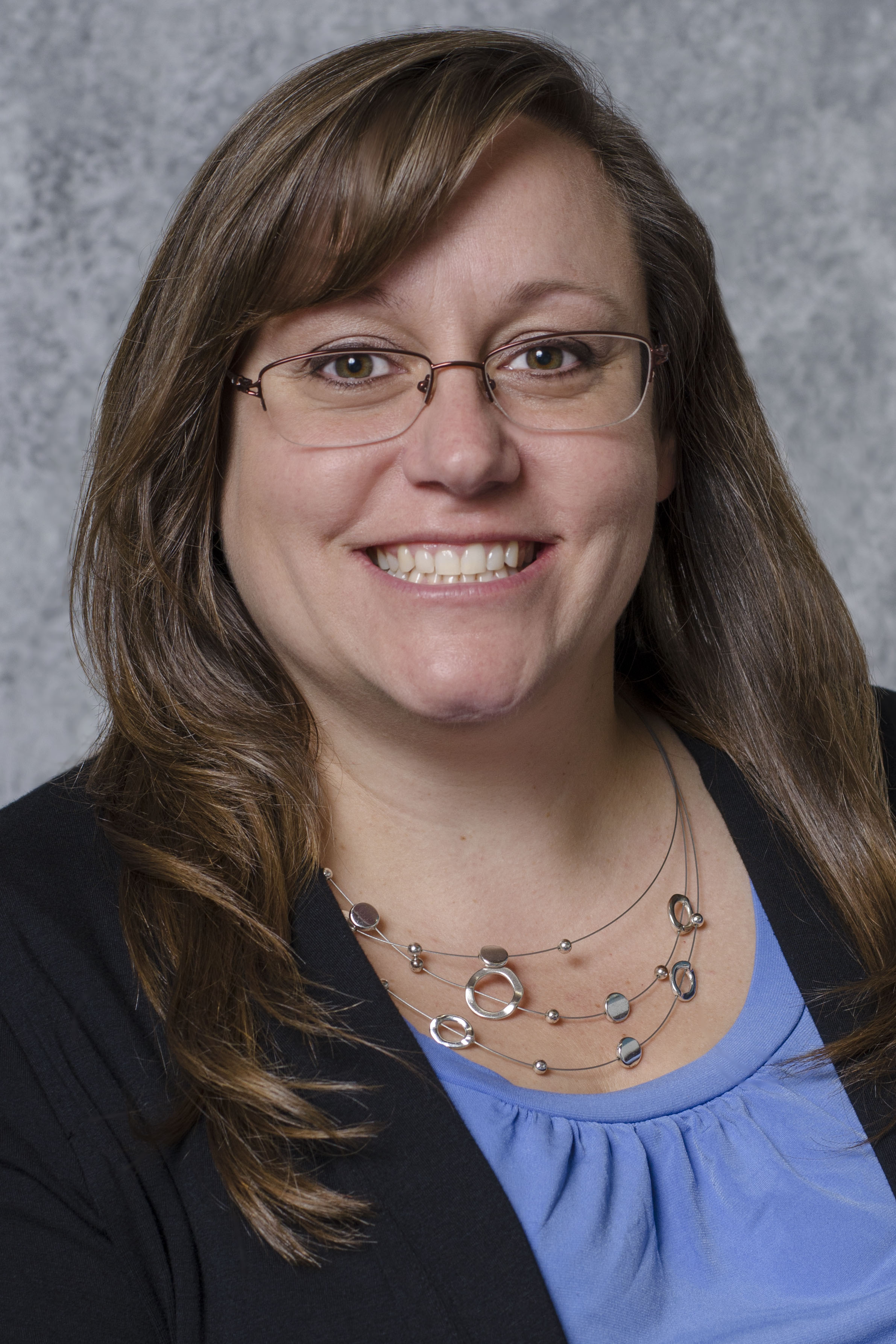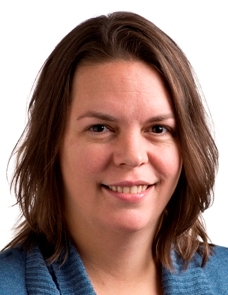Candidates for Nominating Committee
Bethany Anderson
Jeremy Brett
Michele Christian
Meagan Kellom
Bethany Anderson
 Employment Employment
Visiting Archival Operations and Reference Specialist, University Archives, University of Illinois at Urbana-Champaign, 2012-present; Archives Assistant, Dolph Briscoe Center for American History, University of Texas at Austin, 2010-2012; Information Resources Assistant, William L. Clements Library, University of Michigan, 2007-2009.
Education
M.S.I.S., Archival Studies and Records Management, University of Texas at Austin, 2012; A.M. Near Eastern Languages and Civilizations, University of Chicago, 2007; B.A., Anthropology, University of Michigan, 2004.
Professional Activities
MAC: Fall Symposium Planning Committee, cochair, 2014; Member, 2013-present.
SAA: Acquisitions & Appraisal Section, Steering Committee Member, 2013-present; Women Archivists Roundtable, Steering Committee Member, 2013-present; Mentorship Program, 2014-present; Online Content Working Group, Committee Member, May 2014-November 2014; Publications Board, Intern, 2013-2014; Women’s Collections Roundtable, Bylaws Committee Member, September 2012-April 2013; Member, 2010-present.
University of Illinois Library: eResearch Implementation Committee, May 2013-present; Born Digital Special Collections Working Group, December 2013-present; Prairie Research Institute Library Service and Planning Team, October 2014-present.
Describe how your past MAC activities or participation in other professional archival organizations will help you as a member of the MAC nominating committee.
Since becoming involved in MAC, I have considered myself lucky to be part of an organization that provides so many unique and invaluable opportunities for education, collaboration, and engagement. From its symposia and annual meetings, to the newly-formed Speakers Bureau, MAC enables us to create dialogues across the different institutional contexts in which we work. In its 43-year history, MAC has managed to make the archival profession, even for a large region like the Midwest, more intimate and accessible. I especially value the support MAC gives archivists to become involved and effect change in the profession, regardless of where they may be in their careers. Even when I was a recent graduate, my interest in contributing to MAC was immediately met with encouragement. My first formal involvement with MAC was serving as cochair of the 2014 Fall Symposium planning committee—an experience that made me realize the power of collaboration and communication in enhancing and leveraging different perspectives, talents, and skills.
The Nominating Committee plays an especially important role in identifying colleagues whose unique experiences and abilities will help further MAC’s goals and mission—whether they are new professionals, new to the region, or interested in cultivating new skills. In addition to my experience in MAC, being a steering committee member for the SAA Women Archivists Roundtable has likewise taught me the importance of confronting the challenges that we face as a profession together. As a Nominating Committee member, I would be honored to encourage others to step forward to shape and mold the archival profession and become part of the supportive and innovative community that is MAC.
Back to top
Jeremy Brett
 Employment Employment
Processing Archivist/Curator of the Science Fiction and Fantasy Research Collection, Cushing Memorial Library & Archives, Texas A&M University, 2012-present; Special Collections Project Archivist, University of Iowa, 2007-2010; Assistant University Archivist for Records, University of Wisconsin-Milwaukee, 2006-2007; Archival Consultant, Council of State Archivists, 2005-2006; Senior Records Analyst, National Archives and Records Administration-Pacific Region, 2003-2004; Reference Archivist, Wisconsin Historical Society, 2002; State Government Records Archivist, Wisconsin Historical Society, 2001-2002.
Education
M.A., History, University of Maryland-College Park, 1999; M.L.S., University of Maryland-College Park, 1999; B.A., History, George Washington University, Washington, DC, 1997.
Professional Activities
MAC: Newsletter Redesign Task Force, 2013-present; Program Committee cochair, 2013-2014; Program Committee, 2012-2013; MAC Newsletter assistant editor (Regionalia), 2012- present.
SAA: Committee on Archives and Public Policy, 2013-present; Issues & Advocacy Roundtable, vice-chair/chair-elect, 2011-2012, chair, 2013-2014; Deaccessioning and Reappraisal Development and Review Team, 2009-2012.
ARMA: Standards Development Website Records Management Working Group, 2008-2009.
Other: Archival Practice, Section Editor, 2013- present.
Describe how your past MAC activities or participation in other professional archival organizations will help you as a member of the MAC nominating committee.
MAC is a strong and passionate organization, with tremendous resources, actual and potential, at its command.
By resources, I speak chiefly of the individual members that make up MAC – we are a group of smart, driven and dedicated professionals. And we are stronger together than we are alone. I believe it’s important that MAC members offer their professional skills to MAC in useful organizational service. There is great richness in our abilities, our experiences, and our organizational know-how; it would be a crime not to use them for our fellow archivists. I have myself found great personal and professional satisfaction in the positions I’ve engaged in for MAC. I love that I’ve made contributions to the ongoing success of both organizations, and I love just as much working with so many wonderful and dedicated colleagues who recognize the importance of professional service.
Through my service I’ve become better at assigning and carrying out tasks, at working within varied groups and task forces, and in so many other ways that make me a more effective archivist and effective member of a larger organization. I’ve also learned what kinds of skills go into making a good MAC leader, and as a member of the Nominating Committee I would use that knowledge to identify members with those same skills and abilities, who want to use them for the benefit of the entire membership. I would look towards newer members and rising stars in the profession, to make sure that they have the opportunity to begin contributing early in their careers and that a variety of voices as wide as possible might be heard.
Back to top
Michele Christian
 Employment Employment
Archivist and Special Collections Librarian, South Dakota State University, 2013-present; University Records Analyst, Iowa State University, 2000-2013; Project Archivist, State Historical Society of Iowa, 1999-2000.
Education
M.A., History and M.L.I.S, University of Wisconsin-Milwaukee, 1998; B.A. History, University of Northern Iowa, 1995.
Professional Activities
MAC: Member, 1997-present; Presenter at various meetings; MAC Newsletter, Assistant Editor, 2002-2005; Program Committee, 2003 and 2007; Local Arrangements Committee, 2004; President’s Award Committee, Iowa Representative, 2009-present.
SAA: Member, 1997-present.
Other: Consortium of Iowa Archivists, Member, 2000-2013; State of Iowa, Electronic Records Commission, 2002-2006; Upper Midwest Digital Collections Conference, Planning Committee, 2014.
Describe how your past MAC activities or participation in other professional archival organizations will help you as a member of the MAC nominating committee.
I have made many personal connections through my service in MAC, SAA, and other archival organizations, which has given me a great appreciation for all the amazing people involved in the archival profession. As a volunteer organization, MAC could not function without its capable and dedicated members. I have been a member of MAC for about eighteen years and have attended most of the meetings. I have served on committees, including program and local arrangements committees, and have presented at several meetings. Through the years, I have met many of MAC's members and am fortunate that they are my colleagues and consider many close friends. Regardless of years in the profession, I have learned a lot from all members of MAC and recognize the value of engaging new professionals within the organization. Serving on the MAC nominating committee will provide me with the opportunity to meet many more members and reconnect with ones I already know, with a shared goal of strengthening MAC.
Back to top
 Meagan Kellom Meagan Kellom
Employment
Archival Assistant and Cataloger, Minnesota Historical Society, 2010-2014. Student Worker, Minitex Document Delivery Services, University of Minnesota, 2007-2010. File Maintenance Volunteer, Dakota County Historical Society, 2009-2010.
Education
M.L.I.S., Dominican University-River Forest, IL, 2008. M.A. Liberal Studies, University of Minnesota, 2008 (ABT). B.A., Theater and History, College of St. Benedict, 2002.
Professional Activities
MAC: Member, 2012-present; Annual Meeting presenter, Spring 2015; Symposium Organizing Committee Member, Fall 2015.
SAA: Member, 2013-present; Raiders of the Lost Archives participant, 2014.
Describe how your past MAC activities or participation in other professional archival organizations will help you as a member of the MAC nominating committee
As a cataloger, I am usually utilizing the introverted side of my personality. Before becoming an archivist, however, I spent twenty years in the service industry engaging with customers, organizing and running weekly and seasonal events, interacting with the public on a daily basis, and learning a lot about life in a small business, for-profit environment. I truly love being an archivist, but I do see ways in which perspectives from other arenas can help the profession adapt to the changing demands of the modern world and inform problematic areas that have traditionally been difficult for archivists and archives to adjust to. I think that my perspective both inside and outside of the profession could be useful in helping to choose the upcoming leaders of MAC.
As a member of the Nominating Committee, I would enjoy the challenge of searching for candidates with new ideas while still respecting the existing practices of MAC and the profession. One example of this is the recent resurrection of Raiders of the Lost Archives at SAA last year (for which I was not responsible, but which I participated in with unabashed and embarrassing gusto). Once a great and oft-repeated MAC event, this idea had been hibernating in the minds and hearts of a noble generation of archivists until Rebecca Goldman brought it back to life. It is things like this that I would love to see MAC continue to support and I would welcome the chance to be more involved in the process.
Back to top
|